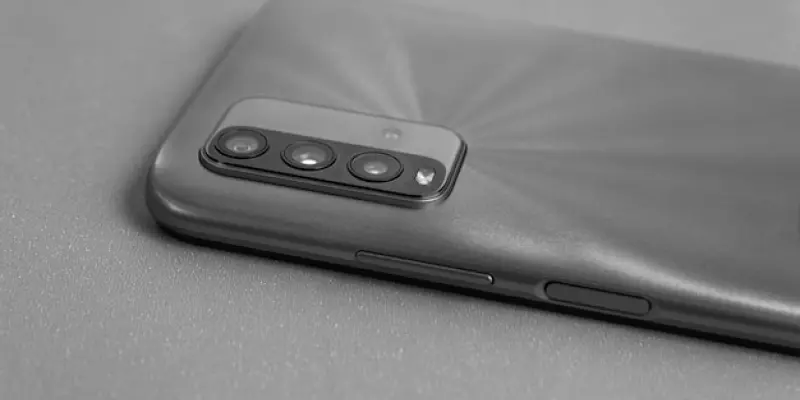In today’s fast-paced digital environment, having an uncomplicated mobile device can be an asset for users overwhelmed by modern smartphone distractions. The introduction of the TCL Flip 4 offers such an experience, presenting itself as a cost-effective alternative for individuals seeking an escape from complex smartphone features. Operating on KaiOS 4.0, this flip phone merges simplicity with basic functionality by supporting select Google applications and a web browser. While it might not replace advanced smartphones entirely, it provides an appealing temporary solution for those needing essential connectivity without additional bells and whistles. However, it’s important to note that due to the constraints of its operating system, the Flip 4 does not support WhatsApp, which might be a deal-breaker for some users. A significant aspect of this device lies in its ability to maintain essential functions without succumbing to unnecessary modern distractions, presenting an intriguing option in the realm of simplistic mobile technology.
Specifications and Features
The TCL Flip 4 has a strong foundation, equipped with a Qualcomm Snapdragon 4s processor, which, while not groundbreaking, is suitable for its intended use. The addition of a 5G modem positions the phone on the cutting edge of connectivity technologies. Its hardware specifications include a modest 1GB of RAM, supplemented by 32GB of expandable storage, allowing users to store essential files without running out of space quickly. One of the standout features of the device is its battery life; a robust 3,000mAh battery reportedly offers up to 15 days of standby time, alongside 52 hours of active use or 40 hours of call time. This makes it a reliable option for individuals needing a device that lasts through extended periods away from charging sources. Charging is efficient with a USB Type-C port facilitating complete charging in just about two hours. These features suggest that while the Flip 4 isn’t designed for media-heavy use, it provides an enduring and dependable option for straightforward mobile needs.
The device’s multimedia capabilities, though limited, include an MP3 player, a basic yet functional addition for those who appreciate simple entertainment options. It is compatible with both wired and Bluetooth headphones, granting users flexibility in their audio experience. When it comes to its displays, the Flip 4 includes a secondary 1.77-inch exterior screen which offers quick and easy access to essential notifications without opening the flip phone. Its primary 3.2-inch screen delivers a satisfactory resolution of 320 x 240 pixels, with a brightness of 400 nits, ensuring readability under various lighting conditions. Despite the relatively low specifications compared to modern smartphones, the Flip 4 focuses on providing sufficient features tailored for its target audience without overcomplicating the user interface or experience. For photography enthusiasts, the device features a 5MP rear camera capable of capturing 720p video at 30 frames per second, a feature adequate for basic photography needs.
Market Position and Affordability
Introducing the TCL Flip 4 into the U.S. market at a price point of $79.99 emphasizes its affordability. This pricing positions the flip phone within reach for those seeking a budget-friendly device that covers elementary communication needs. It competes directly with other simple phones like HMD Global’s Nokia 2660 Flip, targeting customers who desire practical yet economical mobile solutions. The device’s design caters particularly to individuals who prioritize staying connected through calls and texts while limiting distractions inherent in more sophisticated smartphones. Furthermore, by supporting basic internet browsing and select Google applications, the Flip 4 maintains a well-rounded approach to connectivity, provided users are not reliant on apps such as WhatsApp. Despite its technological constraints, this phone represents a focused effort to provide a mobile experience that aligns with today’s diverse user demands without the extravagance of excessive smartphone features. The broader implication of the TCL Flip 4’s release is the acknowledgment of a consistent market for devices prioritizing functionality over complexity. While its full international rollout remains to be detailed, its introduction reflects on how manufacturers are catering to niche segments seeking simplicity in technology. This device is particularly beneficial for individuals who prefer a minimalistic approach to mobile communication or need a secondary, low-maintenance phone. The strategy behind the Flip 4 underscores a growing recognition of varying consumer needs in an increasingly saturated smartphone market, offering an attractive option to a demographic valuing straightforwardness over technical prowess in their mobile devices. As the landscape evolves, devices such as the Flip 4 continue to remind users and manufacturers alike of the importance of aligning technological innovation with user-centric simplicity and accessibility.
A Strategic Path Forward
In the fast-paced digital age, many users find value in simple mobile devices that alleviate the distractions of modern smartphones. The TCL Flip 4 epitomizes this idea, acting as an affordable escape from the complex features often associated with advanced smartphones. Powered by KaiOS 4.0, this flip phone balances simplicity with essential functions, such as select Google apps and web browsing capabilities. While it may not entirely replace high-end smartphones, it serves as a practical temporary option for individuals prioritizing basic connectivity over numerous features. However, a notable limitation is its inability to support WhatsApp due to its operating system constraints, which could deter some users. Despite this drawback, the Flip 4 excels in focusing on crucial functionalities, keeping away from needless technological distractions. This makes it a fascinating choice for people who prefer a minimalist approach, offering a distinctive experience in the world of straightforward mobile technology.

